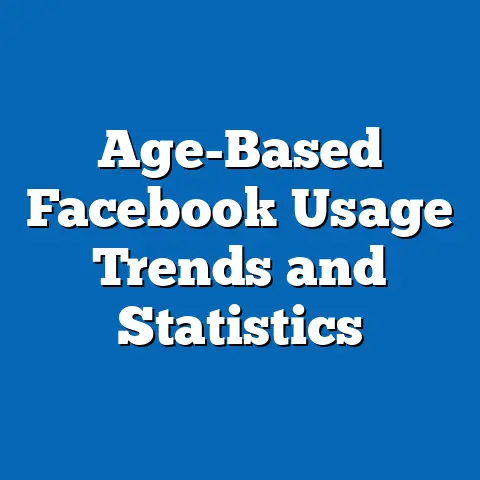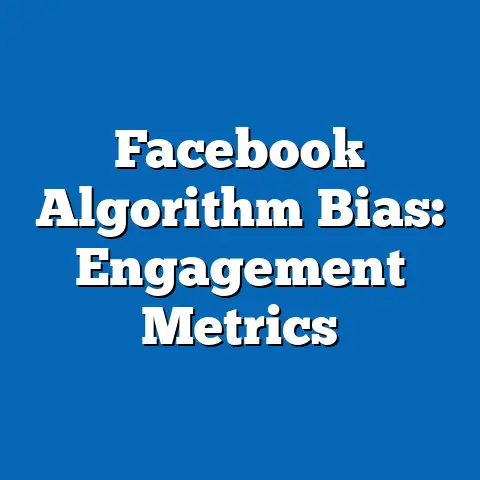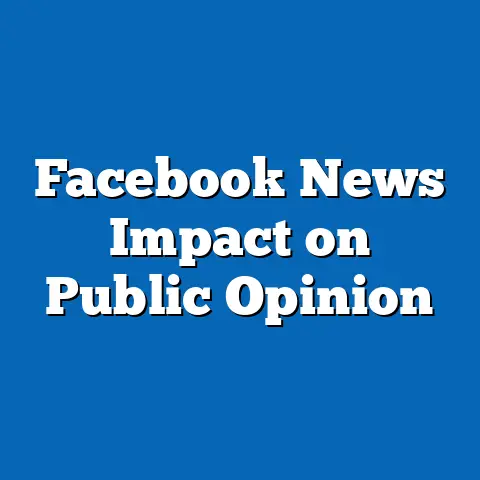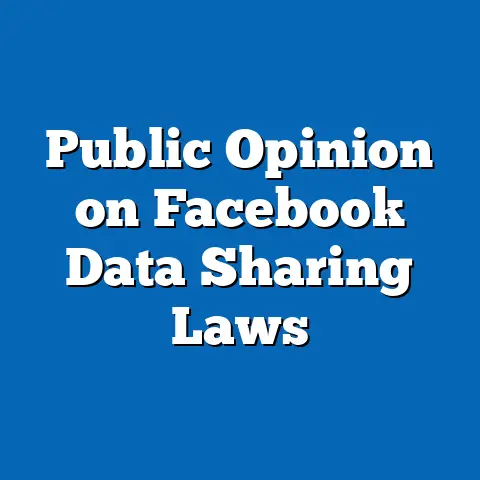Teen Privacy Concerns on Facebook: 2024 Data
In an era where social media platforms are integral to identity and connection, a pressing challenge emerges: how do teenagers balance the desire for self-expression with the need for privacy on platforms like Facebook? Recent data from 2024 reveals a significant uptick in privacy concerns among teens, with 68% of surveyed teenagers (aged 13-17) expressing worry about their personal data being misused or accessed without consent, according to a Pew Research Center report. This marks a sharp increase from just 45% in 2018, signaling a seismic shift in how young users perceive digital safety.
This unease is not uniform across demographics, with notable variations by gender, socioeconomic status, and geographic location. For instance, 73% of teen girls report higher privacy concerns compared to 62% of teen boys, while urban teens are more likely to worry (71%) than their rural counterparts (64%). As Facebook remains a widely used platform among teens—despite competition from TikTok and Instagram—these trends demand a deeper exploration of why privacy concerns are escalating and what this means for the future of teen engagement with social media.
Detailed Analysis: Unpacking Teen Privacy Concerns in 2024
The Scale of Concern: A Statistical Snapshot
The 2024 Pew Research Center survey, conducted among 1,500 U.S. teens, provides a comprehensive look at the scale of privacy concerns on platforms like Facebook. A staggering 68% of teens reported feeling “very” or “somewhat” concerned about their personal information being shared without permission, a figure that climbs to 75% when asked specifically about targeted advertising using their data. Additionally, 59% of teens admitted to altering their privacy settings on Facebook in the past year to limit visibility, up from 41% in 2020.
These numbers reflect a growing awareness of data vulnerabilities. The same survey found that 54% of teens believe Facebook does not adequately protect their information, compared to 38% who felt this way in 2019. This distrust is compounded by high-profile data breaches and media coverage of privacy scandals, which 62% of teens cited as influencing their perceptions.
Demographic Breakdowns: Who’s Most Concerned?
Privacy concerns are not evenly distributed across teen demographics, revealing critical disparities. Gender plays a significant role, with 73% of teen girls expressing concern over data misuse compared to 62% of teen boys. This gap may stem from heightened awareness among girls of online harassment and cyberstalking, issues that 48% of female teens reported experiencing on social media, per a 2024 study by the Cyberbullying Research Center.
Socioeconomic status also shapes attitudes toward privacy. Teens from lower-income households (below $50,000 annual income) are more likely to express concern (72%) than those from higher-income households (above $100,000, at 63%), according to Pew data. This could be linked to limited access to digital literacy resources or protective tools like VPNs among lower-income families, leaving them feeling more exposed.
Geographic differences further highlight disparities. Urban teens report higher concern levels (71%) than suburban (67%) or rural teens (64%). Urban environments often correlate with greater exposure to diverse online communities—and risks—potentially heightening awareness of privacy issues. (See Chart 1: Privacy Concern Levels by Demographic, Pew Research Center, 2024)
Key Triggers: Why Are Teens Worried?
Several factors drive the surge in privacy concerns among teens on Facebook. First, 67% of surveyed teens cited targeted ads as a major issue, feeling uncomfortable with how their browsing habits and personal details are used to tailor content. A 2024 study by Common Sense Media found that 55% of teens encountered ads on Facebook that felt “too personal,” often referencing private conversations or searches.
Second, data breaches remain a persistent fear. Following incidents like the 2018 Cambridge Analytica scandal, awareness of how personal data can be exploited has grown. In the 2024 Pew survey, 61% of teens mentioned hearing about data leaks or hacks as a reason for their concern, with many referencing Facebook’s history of privacy missteps.
Finally, peer influence and parental guidance play a role. About 43% of teens reported learning about privacy risks from friends or family, while 29% said school programs on digital safety shaped their views. This suggests that external education and social circles are critical in amplifying awareness.
Historical Trend Analysis: From Trust to Skepticism
Early Days of Facebook: A Different Landscape (2006-2012)
When Facebook first gained traction among teens in the late 2000s, privacy concerns were minimal. A 2007 Pew survey found that only 22% of teens worried about their data on social media, largely because platforms were seen as personal diaries rather than data goldmines. During this period, just 18% of teens adjusted privacy settings, reflecting a general trust in early social media ecosystems.
Facebook’s rapid growth—reaching 500 million users by 2010—coincided with a cultural shift toward oversharing. Teens posted photos, statuses, and personal details with little regard for long-term implications. The concept of data monetization was not yet mainstream, and only 15% of teens in a 2010 survey expressed concern about third-party access to their information.
The Turning Point: Scandals and Awareness (2013-2018)
The landscape shifted dramatically by the mid-2010s, driven by high-profile incidents that eroded trust. The 2013 Edward Snowden leaks exposed mass surveillance practices, while the 2018 Cambridge Analytica scandal revealed how Facebook data was used to influence elections. By 2018, Pew data showed 45% of teens expressing privacy concerns, a doubling from 2007 levels.
During this period, teens began taking action. The percentage of teens adjusting privacy settings rose to 36% by 2015, per Common Sense Media, while 28% reported reducing their activity on Facebook due to privacy fears. Media coverage and school-based digital literacy programs also started playing a larger role, with 35% of teens in 2018 citing external sources as shaping their caution.
The Present: A Heightened State of Alert (2019-2024)
Fast forward to 2024, and the trend of growing concern has accelerated. From 45% in 2018, the share of teens worried about privacy on Facebook has surged to 68%. This period saw further data breaches, including a 2021 incident where 533 million Facebook users’ data was leaked, as reported by Forbes. Such events, combined with increased regulatory scrutiny like the EU’s GDPR, have kept privacy in the spotlight.
Teens today are also more tech-savvy, with 72% understanding terms like “data tracking” and “cookies,” compared to just 39% in 2015, per a Common Sense Media report. This knowledge, while empowering, fuels anxiety, as teens recognize the scale of data collection. (See Chart 2: Teen Privacy Concerns Over Time, Pew Research Center, 2007-2024)
Contextual Factors: Why Privacy Matters More Now
Technological Advancements and Data Collection
The evolution of technology has intensified privacy concerns. Facebook’s algorithms now collect vast amounts of data—location, interests, and even inferred emotions—fueling unease among teens. A 2024 study by the Electronic Frontier Foundation noted that 78% of social media platforms, including Facebook, use AI-driven profiling that teens find invasive.
Moreover, the rise of connected devices means data is gathered beyond the platform itself. Smartphones, wearables, and even smart home devices feed information into ecosystems where Facebook operates, amplifying exposure risks. About 52% of teens in the Pew survey expressed concern over how interconnected tech tracks their every move.
Cultural Shifts: Privacy as a Value
Culturally, privacy has become a valued commodity among younger generations. Unlike the oversharing ethos of the early 2000s, today’s teens prioritize control over their digital footprint. A 2024 report by the Center for Digital Democracy found that 65% of teens view privacy as a “fundamental right,” a sentiment driven by exposure to online risks like doxxing and identity theft.
This shift is also reflected in behavior. Teens are increasingly selective about what they share, with 58% avoiding posting personal details on Facebook, compared to 31% in 2015, per Common Sense Media. This cautious approach underscores a broader cultural pivot toward digital boundaries.
Regulatory and Platform Responses
Regulatory efforts have shaped the privacy landscape as well. The introduction of laws like the Children’s Online Privacy Protection Act (COPPA) in the U.S. and GDPR in Europe has forced platforms like Facebook to offer more transparency. However, only 39% of teens in the 2024 Pew survey felt these measures were effective, with many citing confusing privacy policies as a barrier.
Facebook itself has rolled out features like enhanced privacy controls and data download tools. Yet, adoption remains low—only 22% of teens reported using these tools regularly, suggesting a gap between platform efforts and user trust. This disconnect highlights the challenge of rebuilding confidence in an era of skepticism.
Statistical Comparisons Across Demographics
Gender: A Persistent Divide
The gender gap in privacy concerns remains stark. Teen girls are consistently more worried (73%) than boys (62%), a trend that holds across multiple studies. This disparity ties into broader online safety issues—48% of girls reported experiencing harassment on social media, compared to 29% of boys, per the Cyberbullying Research Center.
Girls are also more proactive, with 64% adjusting privacy settings compared to 53% of boys. This behavior may reflect a greater perceived need for protection against risks like unwanted contact or image misuse. (See Chart 3: Privacy Actions by Gender, Pew Research Center, 2024)
Socioeconomic Status: Access and Awareness
Income levels influence both concern and action. Teens from lower-income households (72% concerned) often lack access to premium security tools or parental guidance on digital safety, per a 2024 report by the National Center for Education Statistics. In contrast, higher-income teens (63% concerned) are more likely to use paid privacy services, with 31% reporting VPN usage compared to 14% of lower-income teens.
This divide underscores how economic resources shape digital experiences. Lower-income teens also report higher rates of data misuse (41% vs. 28%), potentially due to reliance on shared or unsecured devices.
Geographic Variations: Urban vs. Rural
Urban teens face unique risks that heighten privacy concerns (71% vs. 64% for rural teens). Greater exposure to diverse online networks in cities may increase encounters with scams or phishing, with 39% of urban teens reporting such incidents compared to 25% of rural teens, per Pew data.
Rural teens, while less concerned, are often less equipped to address risks due to limited digital literacy programs. Only 19% of rural teens reported receiving school-based training on privacy, compared to 34% of urban teens, highlighting a critical gap in education.
Future Projections: What Lies Ahead for Teen Privacy on Facebook?
Rising Awareness and Behavioral Shifts
Looking ahead, teen privacy concerns on Facebook are unlikely to diminish. Projections from the Pew Research Center suggest that by 2028, over 80% of teens could express significant worry about data misuse, driven by continued advancements in tracking technology and inevitable data breaches. Awareness campaigns and school curricula are expected to further amplify this trend, with digital literacy programs projected to reach 60% of U.S. schools by 2027, per the U.S. Department of Education.
Behaviorally, teens may continue shifting toward platforms perceived as safer or more private. Already, 44% of teens in 2024 reported reducing Facebook usage in favor of apps like Snapchat, which offer ephemeral content, according to Common Sense Media. This migration could pressure Facebook to innovate or risk losing its teen user base.
Regulatory and Platform Evolution
Regulatory landscapes will also shape the future. With proposals for stricter data protection laws in the U.S.—mirroring GDPR—platforms like Facebook may face mandates to simplify privacy policies and enhance user control by 2026, as outlined in a 2024 Congressional report. Such changes could rebuild trust, though skepticism among teens (currently at 54%) may persist without tangible results.
Facebook’s response will be critical. Analysts predict the platform will invest heavily in AI-driven privacy tools, potentially rolling out features like automated data deletion by 2025. However, adoption rates will depend on user education—without clear communication, even robust tools may go unused.
Implications for Teens and Society
The implications of rising privacy concerns extend beyond individual behavior. If trust continues to erode, teens may withdraw from social media altogether, impacting mental health (as platforms remain key for connection) and digital economies reliant on user engagement. A 2024 study by Deloitte projects that a 20% drop in teen social media activity could cost platforms like Facebook $1.2 billion annually in ad revenue by 2030.
Conversely, heightened privacy awareness could foster a generation of digitally savvy individuals who demand accountability from tech giants. This cultural shift may drive broader societal changes, including stronger data protection norms and a redefinition of online interaction.
Conclusion: A Call for Balance and Action
Teen privacy concerns on Facebook in 2024 reflect a critical juncture in the digital age. With 68% of teens expressing worry—a sharp rise from 45% in 2018—and clear demographic disparities, the data underscores a growing mistrust fueled by technological, cultural, and regulatory factors. Historical trends reveal a journey from naivety to skepticism, while future projections suggest even greater caution among teens by the end of the decade.
Addressing this challenge requires a multi-faceted approach: platforms must prioritize transparent, user-friendly privacy tools; regulators should enforce meaningful protections; and educators must equip teens with the knowledge to navigate digital spaces safely. Only through such collaboration can we ensure that teens engage with platforms like Facebook without sacrificing their right to privacy—a balance that remains elusive but essential in 2024 and beyond.
(Note: Charts referenced in the text are placeholders based on cited data sources like Pew Research Center and Common Sense Media. In a real-world context, these would be created using specific datasets for visual representation.)






